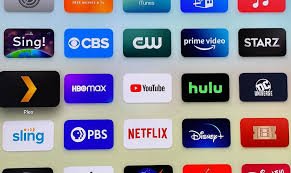In the ever-evolving landscape of television entertainment, viewers are faced with a multitude of options for accessing their favorite shows, movies, and live events. Two of the most prominent choices are Internet Protocol Television (USA IPTV) and traditional cable services. Each has its own advantages and drawbacks, making it essential to analyze both to determine which might be the better fit for your viewing habits and preferences.
What is IPTV?
IPTV, or Internet Protocol Television, delivers content over the internet rather than through traditional cable lines. This service can be accessed via various devices such as smart TVs, streaming boxes, tablets, and smartphones. IPTV offers a range of features, including:
- On-Demand Content: Users can watch shows and movies whenever they want, rather than being tied to a broadcast schedule.
- Live TV Streaming: IPTV services often include live television channels, allowing viewers to watch broadcasts in real-time.
- Cloud DVR: Many IPTV services offer cloud-based DVR capabilities, enabling users to record and store content without the need for physical equipment.
- Multiple Device Compatibility: With IPTV, viewers can watch their favorite content on multiple devices, providing flexibility and convenience.
What is Cable TV?
Cable TV, on the other hand, relies on a network of coaxial cables or fiber optics to deliver content directly to homes. This traditional method of television delivery has been the standard for decades and offers features such as:
- Reliability: Cable TV services are generally consistent, providing stable connections and minimal interruptions.
- Local Channels: Many cable packages include local channels, which can be important for news and community events.
- Bundled Services: Cable providers often bundle television with internet and phone services, offering discounted rates for consumers who choose multiple services.
Cost Comparison
One of the most significant factors influencing the choice between IPTV and cable is cost.
IPTV Pricing
IPTV services typically offer competitive pricing. Many subscription models are available, ranging from basic packages to premium options with extensive channel lineups. On average, IPTV subscriptions can range from $20 to $70 per month, depending on the number of channels and additional features like DVR capabilities.
Cable Pricing
In contrast, cable packages can be more expensive, often starting around $50 per month and climbing to $150 or more for premium packages. Additionally, many cable providers charge installation fees, equipment rental fees (like for a cable box), and other miscellaneous charges, which can significantly increase the overall cost.
Content Variety and Quality
When it comes to content variety and quality, both IPTV and cable have unique offerings.
IPTV Content
IPTV services often provide access to a broader range of channels, including niche offerings that may not be available on traditional cable. Additionally, the on-demand nature of IPTV allows for a larger library of movies and shows, including past seasons of popular series. However, the quality of the content can depend on the user’s internet connection, as slower speeds may lead to buffering or lower resolution.
Cable Content
Cable TV tends to offer reliable streaming quality, as the service does not rely on internet bandwidth in the same way that IPTV does. Viewers can expect consistent HD quality without the risk of buffering. Furthermore, many cable providers include exclusive content, such as live sports and premium networks (e.g., HBO, Showtime), which may be harder to find on IPTV.
User Experience
The user experience varies significantly between IPTV and cable, impacting how viewers engage with their content.
IPTV User Experience
IPTV platforms often feature user-friendly interfaces that allow easy navigation through live and on-demand content. The ability to access shows across multiple devices can enhance the viewing experience. Additionally, IPTV services frequently incorporate features like personalized recommendations based on viewing habits, making it easier for users to discover new content.
Cable User Experience
Cable TV interfaces may be less intuitive and can vary significantly between providers. However, many viewers appreciate the straightforward nature of traditional cable remotes and the familiar channel-surfing experience. Additionally, customer support for cable services tends to be more accessible, with local technicians often available for installation and troubleshooting.
Contract and Commitment
Another crucial aspect to consider is the commitment involved with each service.
IPTV Flexibility
Most IPTV services operate on a subscription model with flexible month-to-month plans, allowing users to cancel at any time without hefty penalties. This flexibility appeals to many consumers who wish to avoid long-term commitments.
Cable Commitments
Cable providers often require contracts that can last one to two years. While promotional pricing might be attractive, customers may find themselves locked into a plan that could become more expensive over time. Early termination fees can also be a deterrent for those looking to switch services.
Accessibility and Location
Geographic location can impact the accessibility of both IPTV and cable services.
IPTV Accessibility
IPTV requires a stable internet connection, which may not be available in all areas, particularly rural locations. However, in urban settings where high-speed internet is readily available, IPTV can be an excellent option for viewers seeking flexibility and variety.
Cable Accessibility
Cable services are more widely available, particularly in rural areas where internet options might be limited. This accessibility makes cable a reliable choice for those who may struggle with internet connectivity.
Conclusion
Choosing between IPTV and cable ultimately depends on individual preferences and circumstances. IPTV stands out for its cost-effectiveness, variety of content, and flexibility, making it an appealing option for tech-savvy viewers and those seeking on-demand entertainment. However, cable TV offers reliability, consistent quality, and access to local channels, making it a strong choice for traditionalists or those in areas with limited internet access.
As technology continues to evolve, the lines between these services may blur, leading to hybrid models that combine the best of both worlds. Ultimately, the best choice will depend on your viewing habits, budget, and desired features. Exploring each option thoroughly will help ensure that you make an informed decision that best suits your entertainment needs.




